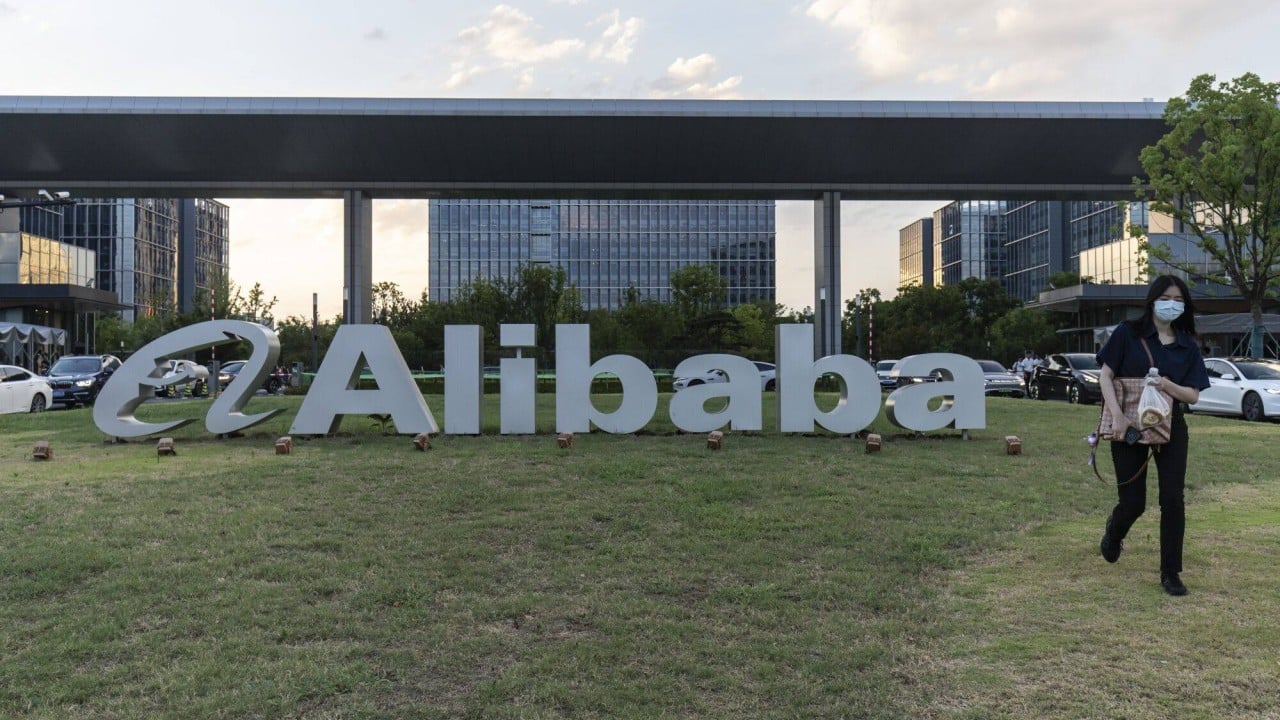Alibaba Group Holding saw revenue grow 4 per cent in the second quarter, missing estimates, as the e-commerce giant navigates an economic slowdown after seeing e-commerce growth during the 618 shopping festival and rising demand for its cloud services.
Alibaba, which owns the South China Morning Post, reported 243.2 billion yuan (US$34 billion) in revenue for the June quarter, roughly equivalent to 234.2 billion yuan a year ago. Analysts expected 249.8 billion yuan in revenue, according to consensus estimates from Bloomberg. The growth was slower than the 7 per cent seen in the previous quarter.
Profits fell 29 per cent to 24.3 billion yuan, worse than the 30.4 billion yuan expected by analysts. The company’s adjusted EBITA, a measure under non-generally accepted accounting principles, dropped 1 per cent year on year to 45 billion yuan in the quarter, beating the consensus estimate of 42.6 billion yuan.
“Our results this quarter demonstrated our strategy at work. Our focus on enhancing user experience by offering quality products at attractive prices with great service led to stabilising market share of Taobao and Tmall Group as we returned the business on the growth trajectory,” Alibaba CEO Eddie Wu Yongming said in a statement on Thursday.
“The cloud business achieved positive revenue growth momentum, driven by public cloud and AI-related product adoption as we continue to invest to maintain our market leadership,” said Wu.
The period accounts for China’s second-largest online shopping festival, which this year ran from May 20 to June 20. Amid flagging consumer spending, the festival was seen as a barometer for consumer confidence in the world’s second-largest economy. Alibaba claimed some impressive growth trends, including gross merchandise value (GMV) growth for thousands of brands on Tmall, but it did not reveal overall GMV numbers for the festival.
China’s economy grew by 4.7 per cent year on year in the second quarter, a slowdown from the 5.3 per cent growth in the first quarter. Retail sales growth also slowed from 3.7 per cent in May to 2 per cent in June.
Many brands have promoted trade-in campaigns instead of cutting prices directly, which may have a limited impact on driving consumer consumption, Kenneth Fong, head of China Internet Research at UBS Investment Research, said in a media briefing last week. “We have not seen any major or direct stimulus policies that could increase consumer confidence,” he said.
Under the largest corporate restructuring in its 25-year history, Alibaba since last year has been seeking to refocus on its bread-and-butter e-commerce and cloud computing businesses, as the Hangzhou-based tech giant navigates the domestic economic slowdown and intensified e-commerce competition from newer players such as Pinduoduo and ByteDance’s Douyin, the Chinese version of TikTok.
Wu, who took over as group chief executive last September, promised last year that the company will invest in revolutionary products, nurture new businesses and find new drivers of growth within a “three-year window”.
Shares of Alibaba closed down 2.4 per cent at HK$76.4 on Thursday in Hong Kong, ahead of the earnings release. Its shares are up over 3 per cent since the beginning of the year.


